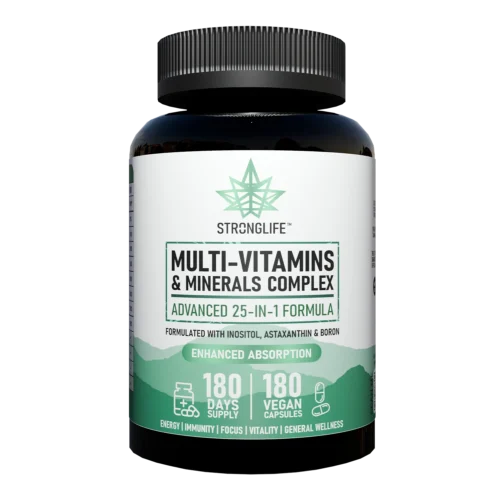- SUPPORT
-
Contact Us Need assistance or have a question? Our team is here to help! Whether it’s about our products, orders, or general inquiries.
-
Subscriptions Enjoy 20% off and never miss out on your essentials! Set up a subscription to receive your favourite supplements automatically.
-
Loyalty Scheme Get rewarded every time you shop! With our Loyalty Scheme, you’ll earn 10% back in points for every order you place.
-
Become an Affiliate Turn your influence into income! Join our affiliate program and earn 20% commission on every new order you refer.
-
Delivery & Returns Policy We aim to dispatch all orders within 1-2 business days, ensuring fast and reliable shipping.
-
Wholesale Looking to stock our products? We offer competitive wholesale pricing and flexible order options to suit your business needs.
-
- FAQs
- BLOG
Your Questions, Answered In Our Blog
Edit Content
Selenium is an essential trace mineral that plays a crucial role in maintaining various bodily functions. While you might not need a lot of it, selenium is vital for supporting immune health, protecting cells from damage, and regulating key processes like thyroid hormone production
Selenium supplements are growing in popularity as people look for ways to ensure they’re meeting their nutritional needs, particularly when dietary sources might not be sufficient. Let’s explore selenium’s potential benefits, food sources, and why supplements could be worth considering.
What Is Selenium?
Selenium is a mineral found naturally in soil, water, and certain foods. It’s considered a micronutrient because we only need a small amount each day, but it has a big impact on health. Selenium primarily acts as an antioxidant, working alongside enzymes in the body to help combat oxidative stress. Oxidative stress occurs when harmful molecules, known as free radicals, build up and damage cells—a process linked to ageing and many chronic conditions.
Selenium’s Role in Enzyme Function
Selenium is essential for the proper function of selenoproteins, which are enzymes that have numerous roles in the body. These enzymes are involved in everything from protecting DNA from damage to supporting immune cells. A great analogy is to think of selenium as a key that activates these enzymes so they can do their jobs efficiently.
The Potential Benefits of Selenium Supplements
Supplementing with selenium may help individuals who struggle to meet their daily needs through diet alone. Here are some of the potential benefits associated with selenium:
1. May Support Thyroid Health
The thyroid gland contains more selenium per gram than any other organ in the body. Selenium plays a role in producing and regulating thyroid hormones, which control metabolism, energy levels, and growth. A selenium deficiency could lead to thyroid imbalances, and research suggests that supplementation may support individuals with conditions like Hashimoto’s thyroiditis.
2. Could Enhance Immune Function
Selenium may help boost immune defence by reducing inflammation and supporting white blood cell activity. Studies have found that adequate selenium levels can enhance the body’s ability to respond to viral infections and may even shorten recovery times.
3. Potential Antioxidant Benefits
As a powerful antioxidant, selenium may help reduce damage caused by free radicals. This protection can play a role in maintaining heart health, supporting skin elasticity, and even improving cognitive function as we age.
4. Heart Health Support
Selenium’s antioxidant properties may reduce oxidative damage to blood vessels, potentially helping to lower the risk of cardiovascular issues. It also works to reduce inflammation, a factor that can contribute to heart disease over time.
5. May Play a Role in Fertility
For both men and women, selenium is linked to reproductive health. In men, selenium supports sperm motility, which is essential for conception. In women, adequate selenium levels may help maintain healthy ovarian function.
Common Food Sources of Selenium
Before considering supplements, it’s helpful to know which foods are naturally rich in selenium. Some of the best sources include:
- Brazil Nuts: Just one or two Brazil nuts a day can provide your full daily requirement of selenium.
- Seafood: Fish like tuna, salmon, and sardines are excellent sources.
- Poultry and Meat: Turkey, chicken, and beef liver all contain selenium.
- Grains and Cereals: Whole grains and cereals grown in selenium-rich soil are also good options.
- Dairy Products and Eggs: Milk, cheese, and eggs contribute to selenium intake.
However, the selenium content in plant-based foods can vary depending on the soil in which they are grown, which is why some people turn to supplements for consistency.
Selenium Levels in Soil
Interestingly, the amount of selenium in soil varies by region. In the UK, for instance, selenium levels in soil tend to be lower compared to other parts of the world. This means even a healthy diet might not always provide enough selenium, making supplementation a practical choice for some.
Types of Selenium Supplements
If you’re looking to top up your selenium intake, supplements are available in several forms:
- Selenium Yeast: A natural form where selenium is bound to yeast for easier absorption.
- Sodium Selenite: An inorganic form that is stable and often used in multivitamins.
- Selenomethionine: A highly bioavailable organic form that mimics the way selenium occurs in food.
Each type has its pros and cons, but generally, selenomethionine is considered one of the most effective and well-absorbed options.
Dosage Guidelines for Selenium
The recommended daily intake of selenium for adults in the UK is around 55 micrograms per day, but this can vary slightly depending on age, sex, and specific health needs. Always follow the dosage instructions on the supplement label and consult with a healthcare professional, especially if you are pregnant, breastfeeding, or have a medical condition.
Possible Side Effects of Selenium
While selenium is crucial for health, too much of it can lead to unwanted side effects. This condition, called selenosis, may cause symptoms like nausea, hair loss, or even nerve damage. Staying within the recommended intake range is important to avoid these issues. For most people, sticking to a daily supplement dose of around 55-200 micrograms is both safe and effective.
How to Choose the Right Selenium Supplement
When choosing a selenium supplement, keep the following in mind:
- Form of Selenium: Opt for supplements that use selenomethionine for better absorption.
- Certifications: Look for third-party testing or certifications that ensure quality and purity.
- Additional Nutrients: Some selenium supplements include complementary nutrients like vitamin E, which works synergistically with selenium as an antioxidant.
Who Might Benefit From Selenium Supplements?
While selenium supplements aren’t necessary for everyone, they may be particularly helpful for:
- Individuals with selenium-deficient diets.
- People living in regions with low-selenium soil, such as parts of the UK.
- Those with specific conditions like thyroid imbalances or weakened immune systems.
- Older adults, who may need more antioxidant support to counteract ageing.
Final Thoughts on Selenium Supplements
Selenium supplements can be an excellent way to support your overall health, particularly if you’re struggling to meet your nutritional needs through diet alone. With its potential to promote thyroid health, boost immunity, and protect against oxidative stress, selenium plays a vital role in keeping your body functioning optimally. However, it’s essential to take the right amount, choose high-quality products, and pair supplementation with a balanced diet for the best results.








